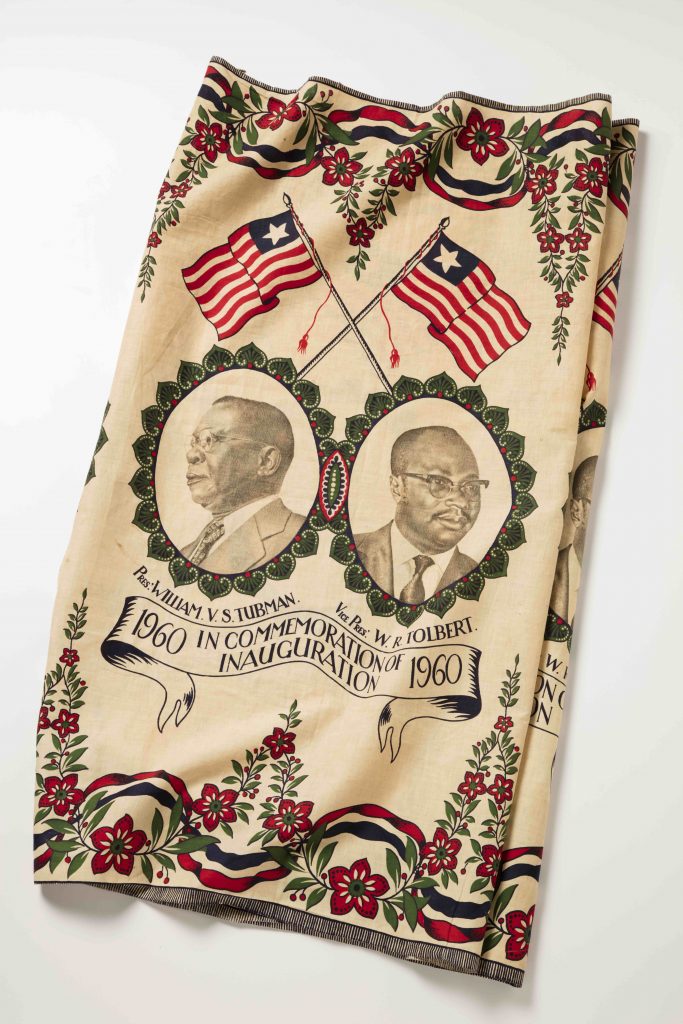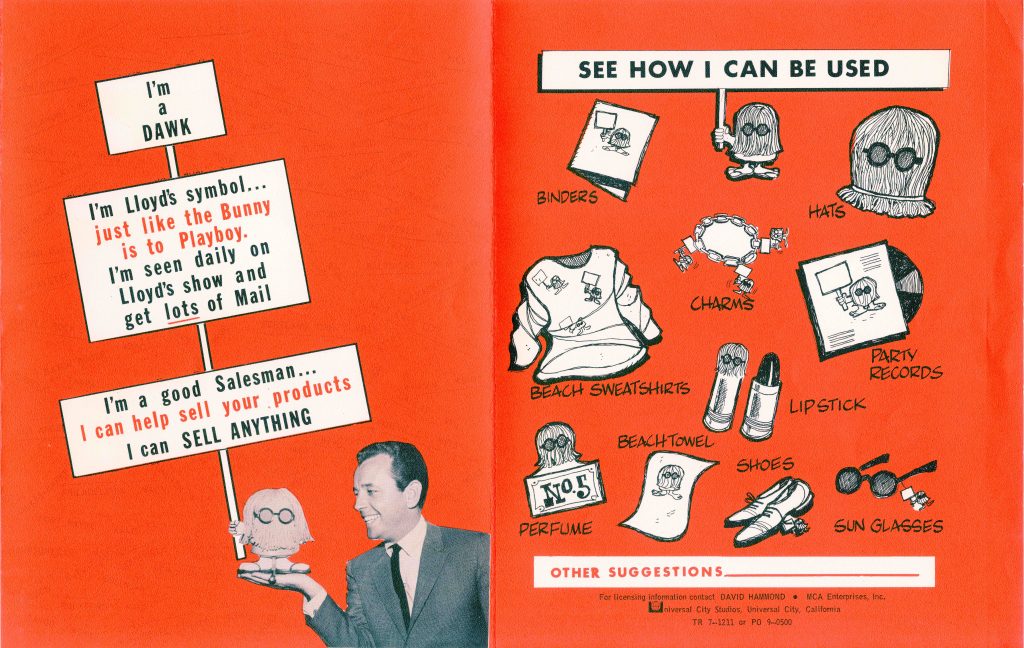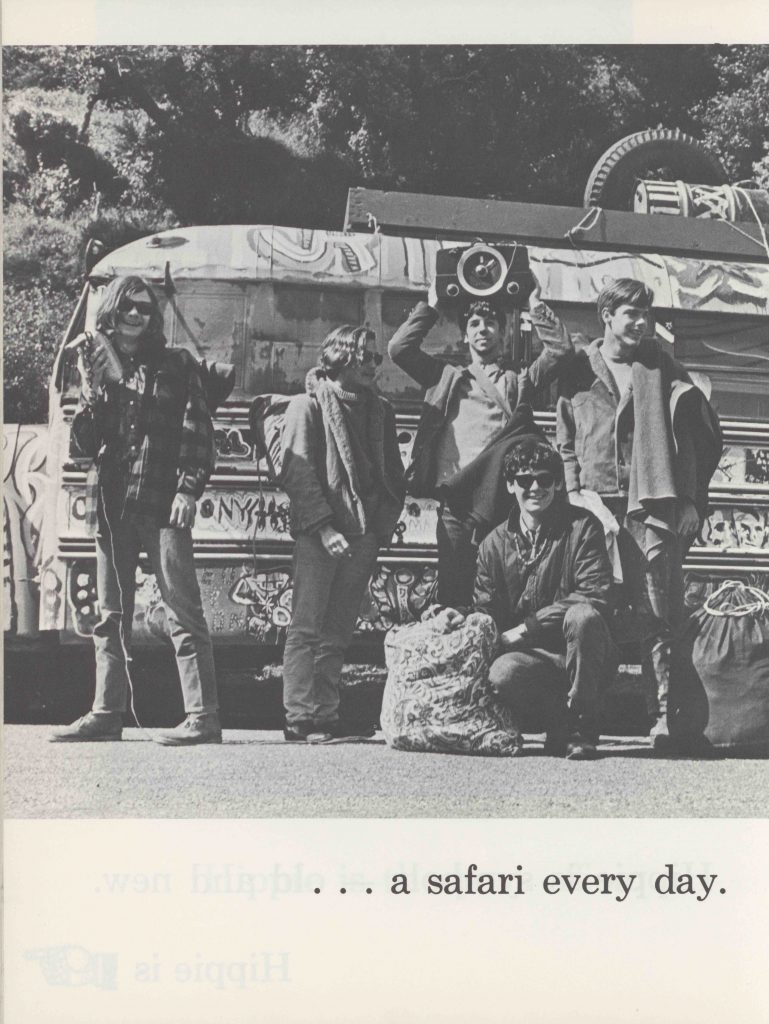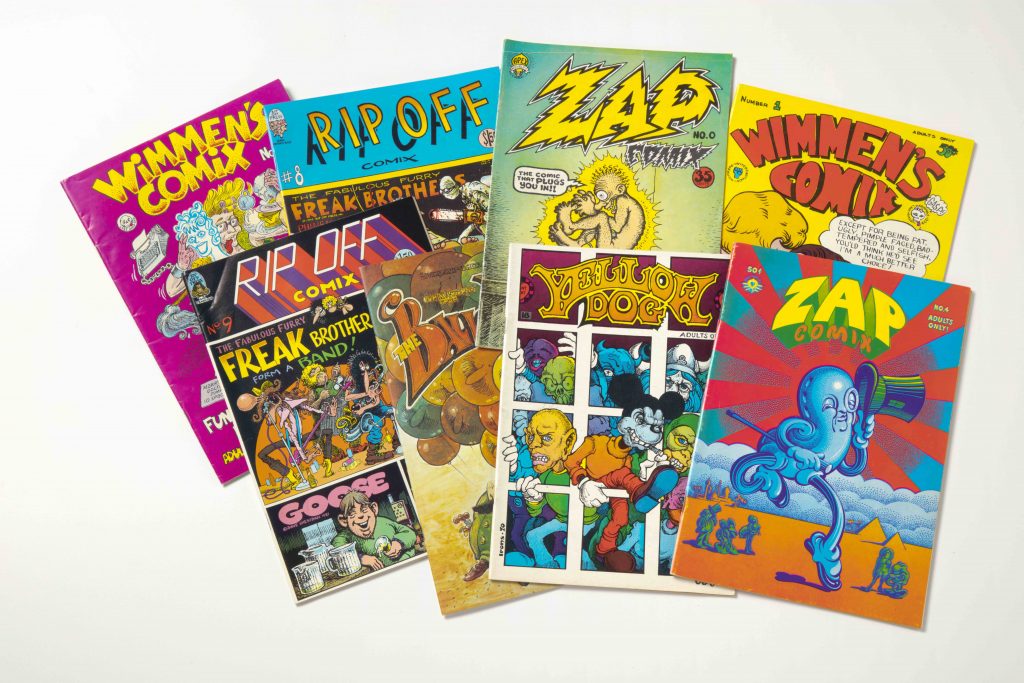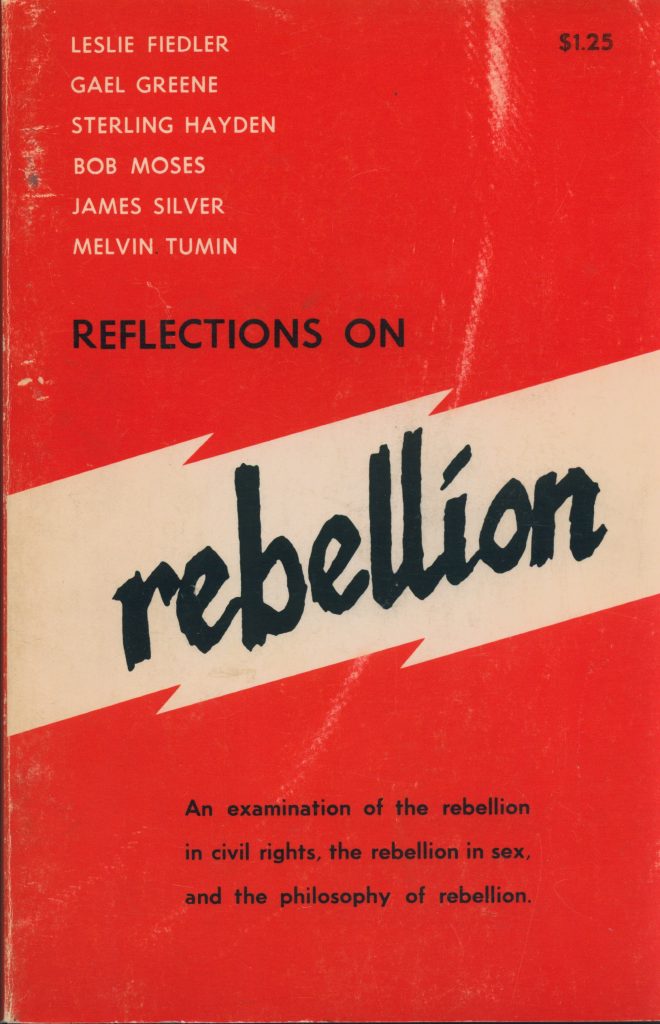The fall 2017 issue of Footnotes marks Northwestern University Libraries’ declaration about becoming center for study of the 1960s. Read the full issue here.
We used so much artwork to illustrate our voluminous collections of 1960s-related material, we couldn’t show it all in its fullness. The following images are a closer look at the items we could only provide mere glimpses of in print!
Avant Garde Music
Avant garde music and art is well represented at Northwestern Libraries, from the archive of experimental cellist Charlotte Moorman to the papers of Dick Higgins, co-founder of the anti-elitist Fluxus art movement. The Music Library holds the John Cage Collection, the archive of the influential 20th Century composer. Among Cage’s holdings are the scores he gathered for Notations, his 1969 book of “graphical scores” by his contemporary avant-garde composers. Below are Sketch for a Tragic One-Act Opera, by Robert Moran, and El Pozo, by Graciela Castillo.
Protest and Struggle
The Charles Deering McCormick Library of Special Collections has many archives that cover the decade’s anti-war movement and racial equality struggles, especially among local and regional activist organizations.
Independence and Change in Abroad
The revolutionary aspects of the 1960s weren’t solely an American phenomenon. Independence movements in Gambia, Botswana, Lesotho, Tanganyika, Ghana and Nigeria peppers the ’60s and early ’70s. The Melville J. Herskovits Library of African Studies holds many historic newspapers, including this Nigerian Outlook from Oct. 1, 1960, making a proud announcement.
The Herskoivts also holds the printed bolt of fabric from Liberia celebrating the 1960 re-election of William Tubman and William Tolbert, the president and vice president. Liberia was seen as a stable presence in West Africa, during a time of sometimes violent revolution. While it courted superpowers outside Africa, Liberia prospered in the 1960s, despite growing accusations of autocratic rule.
The McCormick Library holds nearly 400 posters from a student-led uprising in France, known as the May-June 1968 strike. The students incited factory workers against capitalism and the populist policies of President Charles de Gaulle.
The Birth of Second-Wave Feminism
The scholarly concept of the “Long Sixties” includes the beginnings and ends of the surrounding decades. A renewed interest in women’s rights in the 1960s exploded in the early ’70s with the rise of second-wave feminism — the quest for equal pay, equal treatment, birth control and abortion rights. The McCormick Library holds myriad papers about the movement locally and nationally, including these catalogs and stickers.
Lloyd Thaxton Papers
Thaxton, a 1950 School of Communication graduate, hosted the nationally televised Lloyd Thaxton Show from 1961 to 1968, a variety show that reveled in popular music and comedy. The show proved to be a success, and Thaxton’s papers in University Archives include many materials that show the commercial efforts at work behind the spread of popular culture. In 1965, Thaxton co-founded Tiger Beat, the long-running celebrity and music fan publication for teens. For its first 12 issues, the magazine was known as Lloyd Thaxton’s Tiger Beat, and he wrote a column under his byline.
Chicago Seed
The underground paper Chicago Seed, published from 1967 to 1974, celebrated hippie culture with poetry, music reviews, local antiwar news, and striking graphic design. From 1968 to 1970 it was edited by Medill Professor Emeritus-in-Service Abe Peck. (McCormick Library)
Environmental Awareness
Government-issued environmental impact statements debuted in the 1970s as a part of the National Environmental Policy Act of 1969, a response to the public’s heightened awareness of environmental issues beginning in the 1960s. The Transportation Library holds on of the nation’s largest collections of environmental impact statements. Below is a 1977 environmental impact statement issued by the National Park Service and U.S. Forest Service for the North Cascades National Park in Washington.
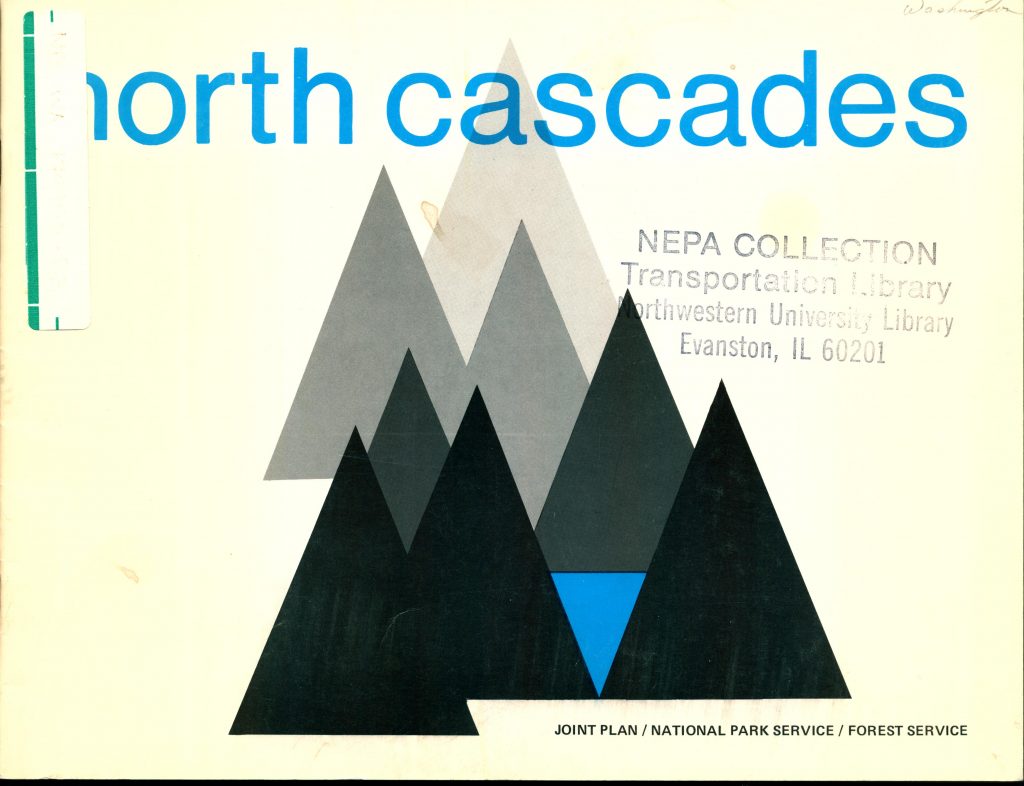
Publishing from Inside the Counterculture
The McCormick Library holds a number of collections from small publishers, underground comix, and other counterculture works from the 1960s. Because the library offered financial support to New Orleans-based Loujon Press for many years, it came to hold the working files for all 5 issues of its Outsider magazine. Outsider was a vehicle for the early writings of avant-garde authors and Beat Generation poets such as Allen Ginsberg, Lawrence Ferlinghetti, Charles Bukowsky, William Burroughs, Norman Mailer, Diane DiPrima and Henry Miller. Shown below is an unusual item included in only 500 copies of Outsider‘s combined issue 4-5: a hand-pressed bit of flora “picked inside a mile of Geronimo’s grave near the Border in Apache Country … and spellbound reverently by Gypsy Lou (Webb, co-publisher).”
Among the holdings is the 1967 book “Hippie is Necessary” by photographer Bob Fitch, who documented the growth of San Francisco’s hippie culture. Fitch pairs his photos with text that completes the phrase “Hippie is…”
Student Activism
University Archives preserves the history of all student groups, and the 1960s were a busy era for activism. Symposium was a Northwestern student-organized program that, from 1962 to 1971, arranged a series of multi-day conferences on a variety of thought-provoking topics. Topics like “Rebellion” (1965) and “Violence” (1968) brought prominent intellectuals and thought leaders to campus to discuss diverse views.
Project Survival was a student-led event, held on January 23, 1970. This extremely successful “teach-out” was planned, organized and carried out by Northwestern Students for a Better Environment. Described later as “the nation’s first large scale environmental movement event,” Project Survival brought thousands of students and activists from around the Midwest to an all-night symposium at the Technological Institute.








